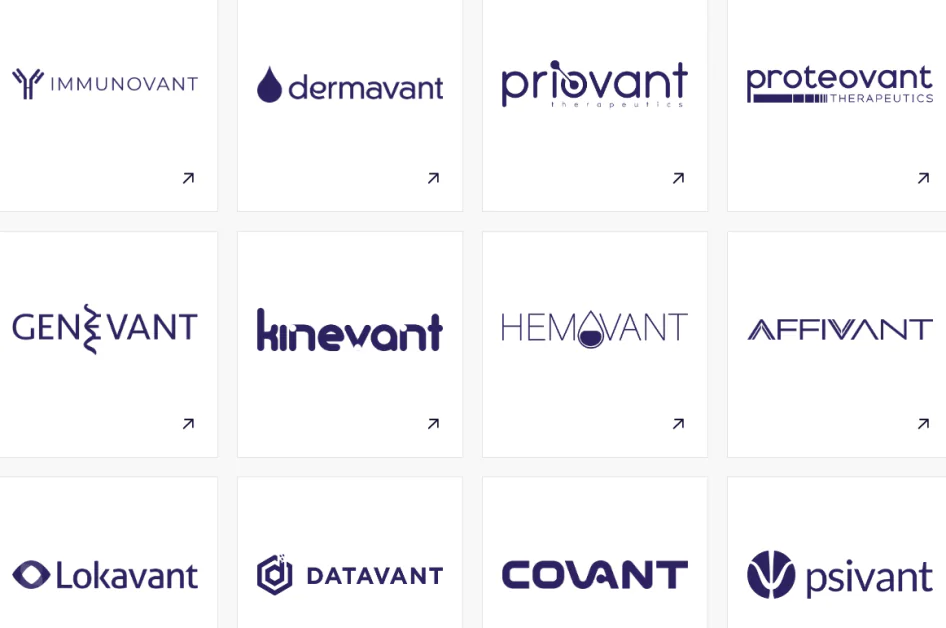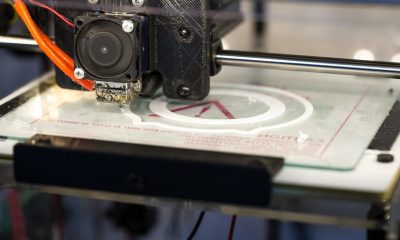BioTech
Top 5 AI & Digital Biotech Companies (July 2025)
Securities.io maintains rigorous editorial standards and may receive compensation from reviewed links. We are not a registered investment adviser and this is not investment advice. Please view our affiliate disclosure.

AI Revolution In Biotech
No sector is left unchanged by the power of AI and digital modeling, and Biotech is no exception.
This is because biology is by far the most “messy” of hard sciences. Chemistry or physics can deal with very controlled environments, pure compounds, etc. Biology has to contend with preexisting extremely complex and constantly changing systems. Also, when analyzing just one protein, biochemists look at thousands or millions of atoms. So, it can get really hard to predict every possible chemical reaction.
Big data, AI models, and digitalization are creating conditions for a knowledge revolution in biotech research.
The first age of biomedicine was to shoot in the dark and see what worked.
We are now firmly established in the age of genomics, where we can focus on specific targets, like one defective gene.
With the incoming digital revolution, we can replicate complete proteins, cells, or even entire organs and bodies in a virtual environment.
What Will It Change?
A big part of why genomics and precision therapies are taking over “traditional” chemical drugs has been a very poor success rate for new drugs in the last decade.
Maybe one can produce an FDA-approved drug for ten thousand candidate drugs. Every step of the way needs to be tested in the laboratory, in live cells, animal,s or humans.
This often represents one to two decades of lost time, as well as many, many billions of dollars down the drain.

Source: Biosourcing
Shooting blind is not a viable plan anymore for drug discovery. This is why researchers need digital predictive models to forecast before any physical testing if a drug is a good candidate.
So, it is not surprising that drug discovery is at the forefront of the business model of most AI biotech companies.
New methods like machine learning allow the software to “guess” the most likely answer using a probabilistic method instead of a fully “mechanical”/algorithmic method.
Like most machine learning technology, a lot of work was done during a full decade, with only the experts in the field really paying attention.
The true revolution that made it recognized in the mainstream was in 2020 when Alphabet/Google DeepMind solved a 50-year-old challenge on protein folding. The program has since modelized most of the known proteins of all living organisms, and Google is creating a new company, Isomorphic Laboratories, to help identify new drugs.
Top 5 AI and Digital Biotech Companies
For investors, Google might be a great play on AI in general, but the biotech aspect will be a tiny segment in a very large company. So, this article will review publicly listed companies that are solely dedicated to the topic of AI and Virtual Biology.
For the same reason, we will not look at companies involved in AI hardware, like Nvidia and its genomics library Parabricks.
(the companies are ranked by market capitalization at the time of the writing of this article)
1. Roivant Sciences Ltd.
Roivant Sciences Ltd. (ROIV -0.18%)
Roivant Sciences Ltd. (ROIV -0.18%)
The company specializes in acquiring biotech startups and boosting their chances of achieving commercialization through subsidiaries called -vant (as each will have “vant” as the last part of their name).
Part of these acquisitions was the purchase of Silicon Therapeutics for $450M. Thanks to a supercomputer and custom computing hardware, Silicon Therapeutics is developing new molecules. This added to a preexisting AI biotech stack portfolio, VantAI.
Roivant also owned the “vant” Datavant, a big data solution for healthcare, selling to hospital pharmaceutical companies, insurance, etc… with regulation-compliant and privacy-respecting procedures.
Other “vant’s” are also data or digital simulation-oriented, like the “Accurate All-Atom Physics-Based Simulations” of Psivant. Or the clinical trial intelligence software/platform Lokavant.

Source: Roivant
Still, most of the company's income derives from pharmaceutical sales of approved products.
Overall, Roivant can be a way to play the data side of biotech, not only digital biology but also medical records, clinical trials, etc….; while at the same time touching on other innovative medicine, especially for skin care, with Vtama for psoriasis.
2. Schrödinger, Inc.
Schrödinger, Inc. (SDGR -0.75%)
Schrödinger, Inc. (SDGR -0.75%)
The company specializes in physics-based models to find the best possible molecule for a given goal, balancing out conflicting metrics like potency, solubility, half-life, synthesizability, etc…
It also uses machine learning, but the addition of a physics-based model allows it to be tested in entirely novel fields for which no data set exists to “train” the AI. This allows Schrödinger to go from 1 billion potential molecules to just 8 solid candidates in a matter of days, exclusively through digital calculation.

Source: Schrodinger
Schrödinger signed with Bayer a 5-year collaboration agreement in 2020 for revenue of $10M. The idea of the agreement is to use Schrödinger technology together with Bayer in-silico prediction models.
Another recent partnership is with Lilly, with up to $425M in total milestone payments for successful discovery.
Past collaborations included Takeda, Sanofi Bristol Myers Squibb, and other smaller pharmaceutical companies.

Source: Schrodinger
Overall, Schrödinger is building a growing portfolio, including more and more proprietary and fully-owned molecules. While not pre-revenue, the company is still not profitable, focusing on expansion and R&D spending to improve its technology.
The company is also looking at expanding toward new segments beyond drug discovery, like complex biopharmaceuticals or even materials like chemicals, batteries, or polymers.

Source: Schrodinger
Investors will want to keep an eye on the new collaborations, as they will reflect the advances of Schrödinger's technology, as assessed by the leaders in the industry, as well as possible success in expanding the core technology to new markets.
3. Exscientia
Exscientia plc (EXAI +0%)
Exscientia plc (EXAI +0%)
The company is using AI to develop precision therapies. It runs a “full stack” AI drug discovery technology with dedicated software at every stage of the drug discovery process.

Source: Exscientia
Exscientia’s technology reduces 70% of the time required for going from a biological target to finding a corresponding drug and an 80% more capital process.
This resulted in 4 compounds in early clinical stages, 30 programs in total, and $6.5B in revenues from milestones with partners. The main focus has been oncology (cancer) and inflammatory diseases.

Source: Exscientia
The company is in a very comfortable financial position for an early-stage drug discovery company, with $625M in Q3 2022, for a net cash burn of just $15M.
This might be an interesting option for investors looking at a well-established AI drug discovery company with a very large cash runway and multiple ongoing partnerships for extra safety.
4. Absci Corporation
Absci Corporation (ABSI -0.36%)
Absci Corporation (ABSI -0.36%)
The company was founded in 2011, with locations in Vancouver, New York, and Zug, Switzerland. It has added to its initial technology the IP of 2 AI-biology acquisitions in 2021, Totient (antibodies) and Denovium (cell lines).
The company is mostly focused on antibody design, creating new from scratch antibodies (“de novo antibodies”), and testing them in laboratories in a 6-week process.
They were the first, in March 2023, to be able to design a functional antibody without any pre-existing data, a method also called “zero-shot.”

Absci has established collaboration with Merck (total of $610M in upfront fees and future milestone potential payment) and Astellas for new product discovery, as well as a partnership with Nvidia to improve the hardware architecture behind Absci technology.
Absci is still at an early stage but has shown tremendous potential and innovation potential already. Investors in the company will need to be on board with the “nothing is impossible” ethos of the company and its brilliant founder and hope for the recent collaboration agreements to be the first in a long series.
5. e-therapeutics plc
e-therapeutics is focused on developing in-silico new RNAi (RNA interference) therapies. It hopes that combining emerging technology, RNAi, and computational drug discovery will give it a significant edge over its competitors.
It is also monetizing the discovery on its platform with other pharmaceutical companies, of which the largest is the large blue chip Novo Nordisk.
The company is at a very early pre-revenue stage and had to raise £13.5 million in the summer of 2022. The company registered a net loss of £2.8 million in H1 2022m for a cash balance at the time of £21.8 million.
Investors in e-therapeutics will need to keep an eye on the cash available and hope for new discoveries and partnerships' revenues to turn the company profitable ultimately.
Building A Digital Biology Portfolio
This is a difficult sector to invest in, as it combines 2 very complex technologies: AI + advanced biotechnology. This makes it pretty much a “black box” for investors, even if they have some expertise in one of the 2 fields.
In addition, most of the companies in the sectors are focused on the same markets, mostly small molecule discoveries and antibody designs, with maybe cell lines as well.
So diversification would make for a safer investing strategy because very few people will be able to be sure to have picked the “winner.” In addition, the market is expected to grow very quickly, at a CAGR of 45% between 2022 and 2027.
So, widespread exposure is more likely to catch this growth without overly relying on specific mathematical models or methods in a very quickly changing and competitive arena.












